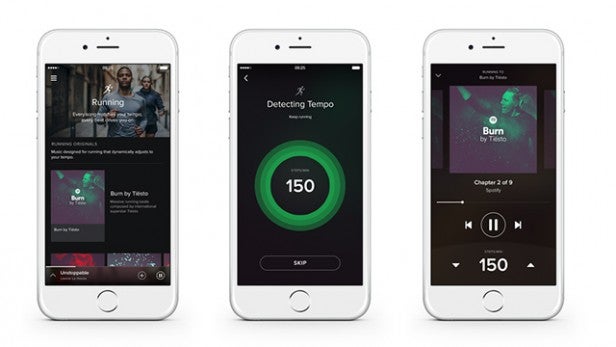

Spicetify - A Powerful Command-Line tool to customize your Spotify-Client, Includes themes,extensions and more.Tizonia - Command-line cloud music player for Linux with support for Spotify, Google Play Music, YouTube, SoundCloud, Plex servers and Chromecast devices.spotify-qt - Lightweight Spotify client using Qt written in C++.spotify-tui - A Spotify client for the terminal written in Rust.Spotifyd also supports the Spotify Connect protocol which makes it show up as a device that can be controlled from the official clients. Spotifyd streams music just like the official client, but is more lightweight and supports more platforms. Spotifyd - An open source Spotify client running as a UNIX daemon.Spot - Gtk/Rust native Spotify client for the Gnome desktop.Psst - Fast and multi-platform Spotify client, made in Rust with a native GUI.ncspot - Cross-platform ncurses Spotify client written in Rust, inspired by ncmpc and the likes.Mopidy - An alternative plug-in based implementation of Music Player Daemon is able to stream from Spotify with an extension.MellowPlayer - A free, open source and cross-platform desktop application that runs web-based music streaming services in its own window and provides integration with your desktop.It enables applications to use Spotify's service (streaming), without using the official closed-source libspotify. Librespot - An open source client library for Spotify.Clementine - Able to stream from Spotify after activating (downloading) a plugin in the settings.Note: All clients listed here require a Premium account to stream from Spotify. 3.13 Spotify has limited or no internet connectivity while using a VPN.3.10 Spotify occupies the whole screen over system panel and its borders are gone.3.8 Not respecting window manager rules.3.7 Search Bar text is invisible when using a dark theme.3.6 Spotify does not detect other devices on local network.3.5 Album art and images are missing, show up as squares.3.2 Blinking images and improper rendering while using Spotify Linux with DWM.3.1 Desktop Environment alerts (beeps) mutes Spotify.

Expected shipping of first batches is November 2016. Reserve a Mighty for as low as $70 ($79 if you snooze on the early-bird pricing) via their Kickstarter campaign, launched today. This is one hopeful example of tech starting to catch up to rapidly changing music consumption habits. In addition, Mighty has their sights set beyond Spotify: they eventually want to integrate other streaming services, music apps, fitness tracking and more onto the device. So why not just purchase a similarly sized and similarly screen-less $49 Apple iPod shuffle, which also allows you to exercise sans smartphone? “People aren’t downloading songs for 99c anymore,” Head of Operations Anthony Pu tells CH, adding that iPod and iTunes syncing has been a regularly frustrating experience-plus, it always requires a connecting cable. For now, they’re promising at least five hours of continuous music playback but aiming for much higher than that-around 10 hours. There’s 2GB of dedicated music memory, which is enough songs to last you two days however, Mighty still hasn’t been able to finalize approximate battery life. Using Mighty seems intuitive: connect your smartphone to Mighty via Bluetooth, open up the Mighty app, log-in to Spotify Premium, and then toggle your playlists to be “Available Offline.” The songs are then saved onto Mighty (downloaded over WiFi), rather than your phone. The small, lightweight device allows you to stream your favorite high-energy songs on-the-go-without requiring constant phone connection. Allowing runners, bikers and others to detach from the physical (and mental) weight of smartphones is Mighty Audio, which launches on Kickstarter today. There’s now a tech solution for those who are tired of having their phone tag along on fitness activities but don’t want to give up their perfectly tailored Spotify playlists.


 0 kommentar(er)
0 kommentar(er)
